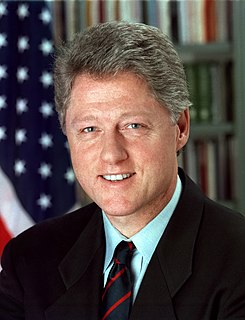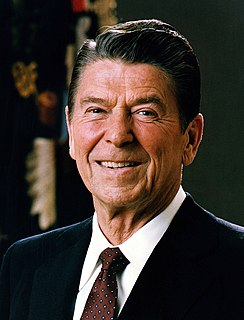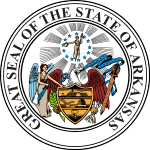
Frank Durward White was an American banker and politician who served as the 41st governor of Arkansas. He served a single two-year term from 1981 to 1983. He is one of two people to have defeated Bill Clinton in an election, the other being the late U.S. Representative John Paul Hammerschmidt of Arkansas' 3rd congressional district.
Harvey Parnell was a farmer and politician from Southeast Arkansas. Parnell served in the Arkansas General Assembly for eight years, first in the Arkansas House of Representatives, and later serving a term in the Arkansas Senate. Following the re-establishment of the lieutenant governor position, Parnell won the statewide election and served under Governor John Martineau. When Martineau resigned to take a federal judgeship in March 1928, Parnell was elevated to become the state's 29th governor, a position he would hold until 1933. Early in his time as governor, Parnell was responsible for Progressive reforms popular with rural voters, including expansion and modernization of the highway system and public school reform. But as the Dust Bowl and Great Depression ravaged the Arkansas economy, Parnell's programs were blamed for bankrupting the state, and his popularity plummeted. He left politics after his second full gubernatorial term ended in January 1933.
Thomas Jefferson Terral was the 27th Governor of Arkansas.

Young Timothy Hutchinson is an American Republican politician, lobbyist, and former United States senator from the state of Arkansas.
Kenneth Lloyd Coon Sr., known as Ken Coon, is a Little Rock educator, professional psychologist, and counselor who was also a pioneer in the development of the Republican Party in the U.S. state of Arkansas. He was the GOP state chairman from 1988–1990. Earlier, he was the party's nominee for lieutenant governor in 1972, its executive director (1973–1975), and its gubernatorial candidate in 1974. He also ran for the United States House of Representatives in 1996 but lost in the primary.

United States gubernatorial elections were held on November 6, 1984, in 13 states and two territories. The Republicans had a net gain of one seat in this election, which coincided with the Senate, House elections and presidential election.

Electoral history of Bill Clinton, 42nd President of the United States (1993–2001); 40th and 42nd Governor of Arkansas.

The Arkansas gubernatorial election of 1982 was the second since Reconstruction in which an incumbent was defeated; the preceding election was the first.

The 2010 Arkansas gubernatorial election took place on Tuesday, November 2, 2010. Incumbent Democratic Governor Mike Beebe ran for re-election, and faced former State Senator Jim Keet, whom he defeated in a landslide to win a second and final term as governor. As of 2019, this is the last time a Democrat was elected Governor of Arkansas and the last time a Democrat carried every county in Arkansas.

The 1978 United States elections were held on November 7, 1978, and elected the members of the 96th United States Congress. The election occurred in the middle of Democratic President Jimmy Carter's term. The Democrats lost fifteen seats to the Republican Party in the House of Representatives. The Democrats also lost three seats in the U.S. Senate to the Republicans. In the gubernatorial elections, Republicans picked up six seats. Among the newly elected governors was future president Bill Clinton from Arkansas.

The Arkansas gubernatorial election of 1984 was held on November 6, 1984. Incumbent Governor Bill Clinton won reelection with a 25% margin of victory over Jonesboro businessman Woody Freeman. This was the last gubernatorial election in Arkansas before the implementation of Amendment 63, lengthening the term of the governor of Arkansas from two to four years. Winning his third of five terms as Governor of Arkansas, Clinton continued to serve this office until shortly after he was elected to the presidency in 1992.

The Arkansas gubernatorial election of 1986 was conducted on November 4, 1986, to elect the Governor of Arkansas.

The 1998 Arkansas gubernatorial election took place on November 3, 1998 for the post of Governor of Arkansas. Incumbent Republican governor Mike Huckabee defeated Democratic nominee Bill Bristow to win a full term in office.

The 1980 United States presidential election in Arkansas took place on November 4, 1980. All fifty states and The District of Columbia were part of the 1980 United States presidential election. Arkansas voters chose six electors to the Electoral College, who voted for president and vice president.

The 1932 United States presidential election in Minnesota took place on November 8, 1932, in Minnesota as part of the 1932 United States presidential election.

The United States presidential election in Arkansas, 1968 was held on November 5th, 1968. American Independent candidate George Wallace won the state with 235,627 votes, with Republican Richard Nixon winning 189,062 and Democrat Hubert Humphrey winning 184,901.

The Arkansas gubernatorial special election of 1913 took place on July 23, 1913. Acting governor Junius Marion Futrell chose to not seek a term in his own right, but in 1932 he would win a term as governor of Arkansas. Democratic George W. Hays defeated the Republican, Progressive and Socialist candidates Harry H. Meyers, George W. Murphy and J. Emil Webber with 64.25% of the vote.
United States gubernatorial elections were held on November 8, 1913 in 4 states.

The 1930 Arkansas gubernatorial election was held on November 4, 1930, to elect the Governor of Arkansas, concurrently with the election to Arkansas's Class II U.S. Senate seat, as well as other elections to the United States Senate in other states and elections to the United States House of Representatives and various state and local elections.


















